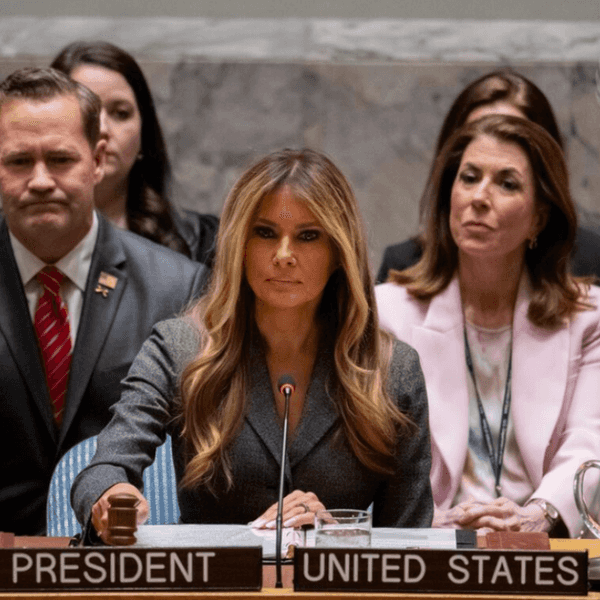
All eyes will be on North Carolina next year, when the Republican Party holds its 2020 convention in Charlotte to nominate President Donald Trump for a second term. In truth, though, the state has been the center of attention for a while because of the actions of party members — and the gaze has not been kind.
The North Carolina GOP realizes it has a problem, quite a few of them, and is busily trying to recover. But what’s the best path as the party tries to regain the trust of voters in a state that is a crucial battleground, one where independents are an important part of any winning coalition, and where millennials and Generation Z voters are fickle?
Standing firmly with the president, who won in 2016, will certainly solidify the base. For those voters, party and presidential loyalty might calm any doubts about scandals and missteps. But what about those still making up their minds?
One step for Republicans was electing a new party chair, lawyer Michael Whatley of Gastonia, to replace outgoing chairman Robin Hayes, indicted on bribery charges. Hayes had given up many of his day-to-day duties and had said he would not run for re-election; he and three co-defendants have pleaded not guilty.
On Whatley’s résumé is his role as a member of George W. Bush’s Florida recount team in 2000. That’s an interesting credential considering another of the state party’s challenges — charges of election fraud concerning the counting and collection of absentee ballots in North Carolina’s 9th District last fall. An operative for what looked to be winning GOP candidate Mark Harris has been charged, and a special election is next between Democrat Dan McCready and current Republican candidate Dan Bishop, who won the spot in a primary redo.
The playbook so far follows the Trump example of trying to move past old scandals quickly. Hayes left to positive comments on his strengthening the GOP’s power in the state. But the party’s current position is not quite as solid as it had been. Democrat Roy Cooper sits in the governor’s mansion, and though Republicans are still in the majority in both the House and Senate in Raleigh, they lost their supermajority in 2018, so they can no longer easily override every gubernatorial veto.
That scenario played out after Cooper vetoed a “Born Alive Abortion Survivors Act,” which would have penalized medical professionals for allowing a survivor of an abortion to die. Cooper had characterized the bill as unnecessary, as current legislation already protects those survivors, with most Democrats agreeing that the act would result in government interference in complicated medical situations and the doctor-patient relationship. Cooper’s veto held.
The situation is both complicated and very simple, with the North Carolina voter split mirroring the urban-rural divide across the country. In 2018, Republicans in the state suffered major losses in dense counties and big cities. For example, Democrats swept the county commissioner races in Mecklenburg County, Charlotte’s home.
Looking at the landscape of the population and voting preferences in North Carolina cities, the new GOP leadership has yet again promised more minority outreach, with appeals to family-oriented and faith issues. “Their urban outreach is zero,” Derek Partee, an African American and former vice chair of the 12th District GOP, said in The Charlotte Observer. “There isn’t a person of color in leadership positions.”
Because of this track record, characterized by criticism not just from political opponents but also from African Americans within the party, the latest professed efforts resembled parody or came off as insincere. Voters, particularly those who are poor, young, elderly and African American, have hardly forgotten GOP gerrymandering, now being fought in the courts, and repeated efforts to pass voter-ID restrictions.
The ambivalence about outreach is similar to the national Republican reset that wasn’t, with Trump’s often race-based appeals quieting the post-Barack Obamasoul-searching the GOP promised.
The re-election campaign of GOP Sen. Thom Tillis shows the back-and-forth of coming up with a winning strategy. Wary of a challenger from the right, Tillis is trying to show as little daylight between him and the president as possible, while his office churns out releases showing a more bipartisan side, listing collaborations with Democratic colleagues. (This week, it included presiding with Sen. Chris Coons over a Senate Judiciary subcommittee hearing on the state of patent eligibility in America.)
But the uncertain nature of the state means Democrats aren’t exactly in the clear. Cooper’s veto of the “Born Alive” bill might hurt him, despite supportive voters afraid that a bill like that would pave the way for abortion laws as restrictive as those being passed in other Southern states. Opposing the move are pro-life activists and voters, and politicians such as Bishop, who is accusing Democratic opponents of endorsing “infanticide.” North Carolina is still part of the Bible Belt, with deeply held religious beliefs informing the political choices of some voters.
Will the Republican rebranding in North Carolina work in time for a Trump repeat victory in 2020? The results in the September special election in the 9th District, tainted by gerrymandering that still favors the party, may provide only part of the answer.
More likely, even after Republicans arrive next year to party in a Democratic city where the mayor has had to defend her choice to welcome them, no one party will have all the answers.
Mary C. Curtis has worked at The New York Times, The Baltimore Sun, The Charlotte Observer, as national correspondent for Politics Daily, and is a senior facilitator with The OpEd Project. On June 11, she received a 2019 Dateline Award for excellence in journalism from the D.C. pro chapter of the Society of Professional Journalists. Follow her on Twitter @mcurtisnc3.
IMAGE: Mark Harris, who stepped aside as Republican nominee in the NC-9 following exposure of a vote-rigging scandal that involved GOP operatives in his campaign.








